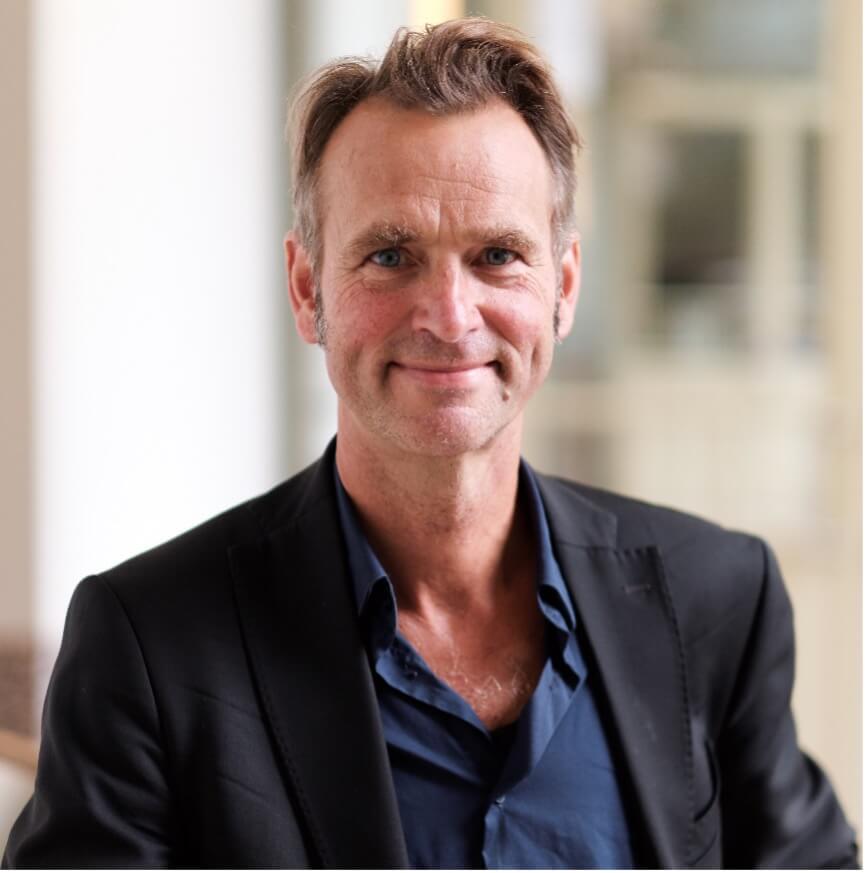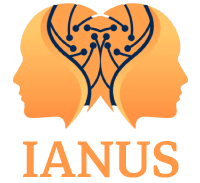An interview has been held with the coordinator of the IANUS project Prof Hub Zwart, professor of philosophy and dean of the Erasmus School of Philosophy at the Erasmus University of Rotterdam. Prof. Zwart provided interesting insights on the course of the project and the overall topic of trust in science.
The full interview is quoted below:

1. How would you describe the primary aim of the IANUS project?
Let me answer this question by telling a story about a famous colleague, Friedrich Engels, who grew up in Wuppertal, at a time when the industrial revolution was drastically changing this rural area into an industrial one. He was sent to Manchester to work for a cotton firm at the age of twenty-two because his father hoped this would change his radical Hegelian ideas. While doing his job during the daytime, young Engels used his spare time to roam the streets of Manchester, and he was absolutely shocked by what he saw: the staggering social disruption, the horrible environmental pollution. He decided to write a book about it and the rest is history.
Ten years ago, an important concept was coined: responsible research an innovation. We again experience an epoch of permanent technoscientific revolution. Innovation is the default. How to ensure that this transition (contrary to what happened in Manchester in the 1840s) evolves in a responsible rather than a disruptive manner? Our answer: by opening up to society at large, in two directions, – and here is where the IANUS figure comes in, because we aim to look in both directions. We are looking at science, urging knowledge institutes to adopt an ethos of transparency, responsibility, and responsiveness, sensitive to societal values and concerns. But we also look at society. As a IANUS colleague recently phrased it, the concern that society suffers from a “knowledge deficit” has been replaced by the idea of a “trust deficit”. Trust has to be earned, however, – basically by being trustworthy.
We witness an era of polarisation and conspiracy theories, and Habermas’s public sphere has fragmented into a plethora of bubbles, so that we face multiple and often conflicting sources of information. The time-old philosophical question, raised by Pilate and others, namely “What is truth?” has gained societal urgency. Rather than discarding conspiracy theories and other disconcerting developments, my question as a philosopher always is: is there a “moment of truth” in such ideas? If we fail to address such questions, the repressed will inevitably resurge. And the answer is, yes, for instance because there is a power gap between powerful global companies and large sections of society when it comes to influencing the agenda of technoscientific change. Trustworthiness requires that we become responsive to the questions and concerns of others. The phrase epistemic inclusion tries to capture this. How to initiate a mutual learning process between diverging worlds of knowledge and experience? Trustworthiness requires that we, as academics, acknowledge that we encounter knowledge deficits as well, and that we need the dialogue with and exposure to the views of others to address that challenge.
2. What can we expect from IANUS in the following years?
Basically, three things, although all three activities build on the concept of mutual learning. First of all, we will navigate the landscape of research and debate, and this evidently includes interaction with other (previous or ongoing) projects. It is an empirical journey (e.g., discourse analysis) but we also study how trust and trustworthiness are conceptualised. Secondly, we aspire to learn from societal stakeholders, via interactive exercises and co-creation. This is where case studies, workshops and social labs come in. Finally, we will share our results, but once again in an interactive manner, for instance via policy labs. Our project is a collective learning process.
3. Where do you see the biggest benefits of spreading trust in science?
For me, trust is not something which should be promoted or spread. Rather, trust should be earned, by being trustworthy. We should take distrust seriously. In fact, skepticism and distrust is an integral part of scientific or scholarly research. Research starts when accepted views of the ideas of a privileged stratum are no longer taken for granted. One important way of demonstrating your trustworthiness is the willingness to acknowledge and learn from your mistakes. Let me again give a concrete example. At our university a debate recently unfolded concerning the question whether and how we (Erasmus University Rotterdam) should collaborate with the fossil industry, with companies such as Shell. Can citizens trust the outcomes of research funded or co-funded by the fossil industry? For me, the answer to this question is far from obvious. On the one hand there is the argument that a university should use its collaborations with the fossil industry to foster and facilitate the transition towards sustainability. Others will argue that these companies have had their chance but failed to take their responsibility in the past so that, in order to be a reliable source of insight, these collaborations should be discontinued. This example indicates that trust in science is not an academic debate. In fact, climate research is one of our case studies. Trustworthiness can only be achieved when we are willing to explain in an accountable manner how research works while at the same time taking the questions, concerns, and values of other voices seriously, not as an obstacle to research, but as a source of inspiration for research.
4. How do Erasmus University Rotterdam and your research team enhance trust towards their scientific activities?
I do not want to sound chauvinistic, but… I do think that, when it comes to trust in science, Rotterdam and the Erasmus University Rotterdam is an interesting place to be. The city and Port of Rotterdam are living labs where all the global societal challenges of today can be studied on site. Take COVID-19 for instance. The Erasmus Medical Centre not only hosts a virology department of global prominence, but also took the lead in organising intensive care for patients on a national level. Our colleague, virologist Marion Koopmans, became a world-famous scientist, but also the target of threats, accusations, and harassment via social media. That is why, during the launch of the IANUS project, we invited her to speak at our conference, to learn from her experiences. For Marion Koopmans, trust in science is not an academic question but an existential challenge. How to be a responsible scientist in a world adrift? How to connect cutting-edge research (and all the complexities and uncertainties this involves) with non-stop policy advice and participation in public debate?
5. Which do you think is the difference between healthy skepticism and (misplaced) distrust?
Skepticism is part of the scientific method, of the ethos of science. Science begins when we refuse to take widely accepted views for granted. Discontent in established discourse is often the starting point for serious research. We like to think of the history of science as a history of triumphs, but it is also a history of biases, questionable decisions, and mistakes. As a philosopher of science, I see myself as a philosopher in science, reflecting on scientific practices from within, from a position of close proximity, precisely because this allows me to ask critical questions. How to prevent knowledge production from going astray? How to ensure that our research practices are valid and inclusive?
Hegel already argued that, although skepticism is important, it may end in paralysis, so that the fear of erring itself becomes an error. Skepticism must be overcome, he explained, not by being uncritical, but by incorporating criticism and skepticism into our methodologies. Our knowledge may be one-sided, we may suffer from knowledge deficits. For me, this includes exposing yourself to the questions, concerns, and criticism of others, because their knowledge, values and experience are important. Open up to society at large, through intensive dialogues with other forms of knowledge, e.g., practical or experiential knowledge, citizen science. Rather than denying the expertise of scientific experts, such a dialogue is a more rewarding and engaging experience for researchers that mere knowledge dissemination. And many scientists are very eager to follow such a path. Our aim is to answer the question: How?
6. Anything else you would like to share?
One misunderstanding concerning research which I sometimes encounter is the idea that research comes down to following or applying prescribed protocols, and that scientific methodologies leave little room for reflection. I have a different experience. Method comes from the Greek work for pathway (“hodos”), and method literally means following a path together, reflecting and deliberating on your methods while being at work. In other words, rather than thinking that we already know the answers, method is something which evolves along the way. Although methodology is important, methods should not be taken for granted. Rather, research is an interaction between available methods (the results of previous lessons learned) and new challenges and experiences. In other words, a good research project changes the way research is being done and universities are organised.
